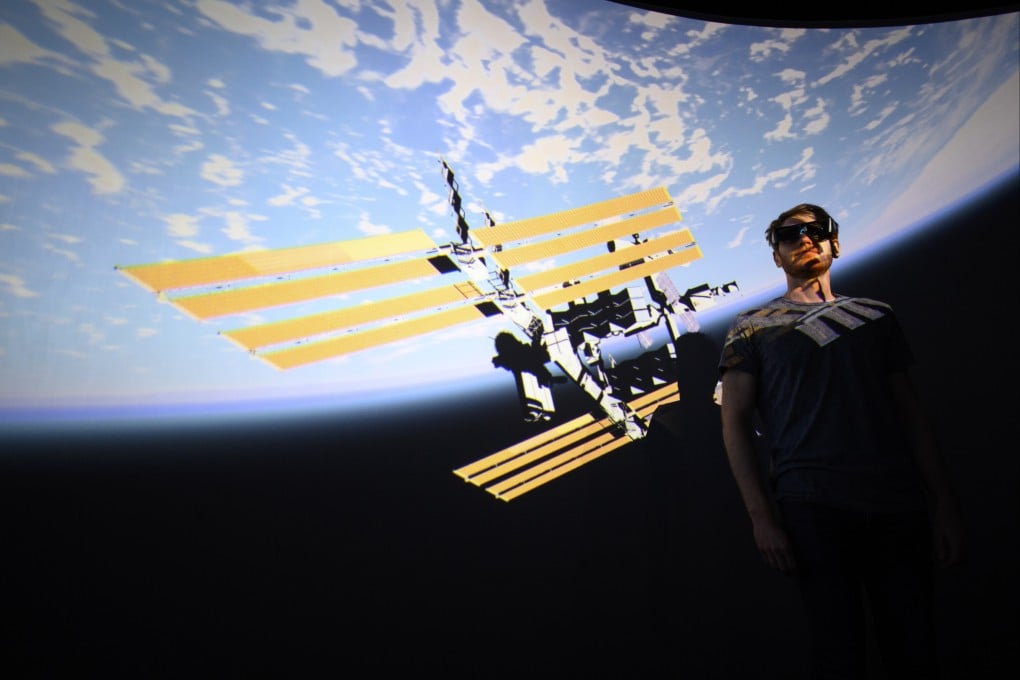A Google Earth for the universe: VR space exploration software builds amazing 3D renditions of everything, from the International Space Station to Saturn and beyond
- A Swiss university is releasing free software for virtual views – close up and far away – of objects in space
- From the International Space Station to the planets, solar system and universe, the 3D views are incredible

Researchers at one of Switzerland’s top universities are releasing open-source beta software that allows for virtual visits through the cosmos including a trip to the International Space Station, the moon, Saturn over galaxies and well beyond.
The programme – Virtual Reality Universe Project, or Virup – pulls together what the researchers call the largest data set of the universe to create three-dimensional, panoramic visualisations.
Software engineers, astrophysicists and experimental museology experts at the Ecole Polytechnique Federale de Lausanne, or EPFL, have come together to concoct the virtual map that can be viewed through individual VR gear, immersion systems like panoramic cinema with 3D glasses, planetarium-like dome screens, or a PC for two-dimensional viewing.
“The novelty of this project was putting all the data available into one framework, when you can see the universe at different scales – near us, around the Earth, around the solar system, at the Milky Way level, to see through the universe and time up to the beginning – what we call the Big Bang,” says Jean-Paul Kneib, director of EPFL’s astrophysics lab.

Think a sort of Google Earth – but for the universe. Computer algorithms churn through terabytes of data and produce images that can appear as close as one metre (about 3 feet), or an almost infinite distance – as if you sit back and look at the entire observable universe.